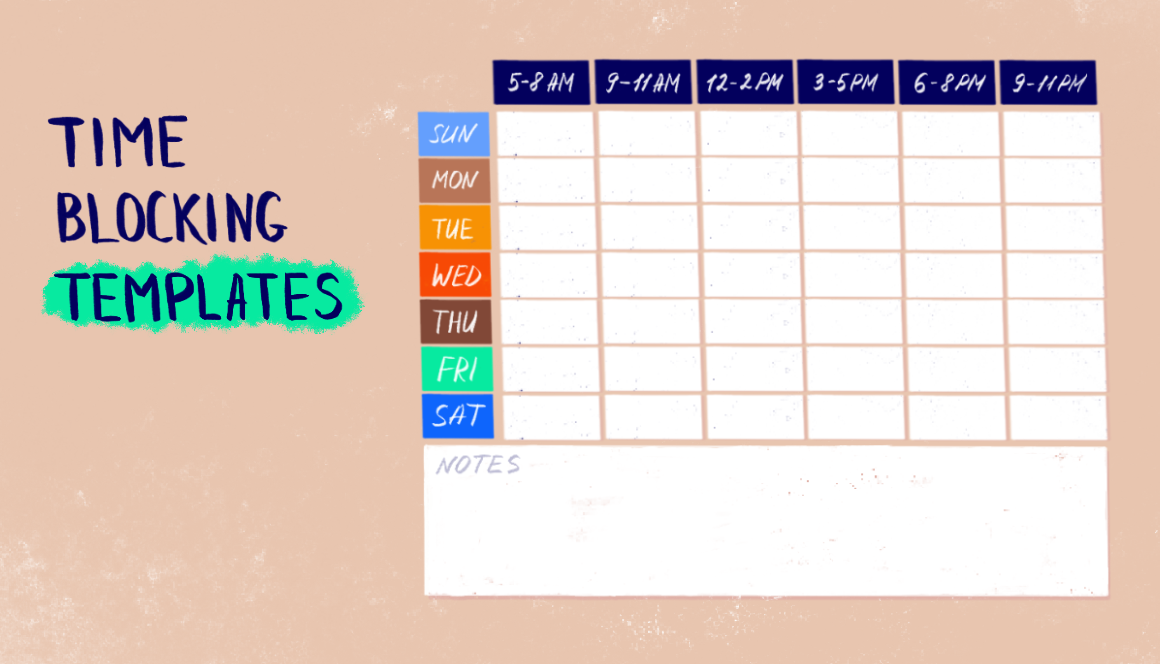4 Ways How to Manage Deadlines in Project Teams
Managing deadlines in project teams is crucial for ensuring successful project completion. Discover 4 effective strategies to efficiently manage deadlines and keep your team on track.

Deadlines are like the personal trainers of the project world – pushing us to work harder and perform better.
Deadlines are a common part of life, whether it be for work, school, or personal projects, but effective deadline management in project teams is vital as it helps ensure that:
- tasks are completed on time
- resources are allocated effidecasciently
- progress is tracked accurately.
How Do Deadlines Work?

Deadlines are not just random dates plucked out of thin air but rather strategic milestones that serve as roadmaps for your project's success.
However, they must not be confused with timelines. Both are important for project management, but they serve different purposes.
Deadline Vs Timeline
- A deadline is a set date or time within which a project or an activity ought to be accomplished. It becomes a case of do or die.
- Timeline is a visual display of the project in terms of sequence of events, tasks or activities. It resembles more of roadmap, where the progress and dependencies of each of the task is presented as time goes by.
Thus, look at a deadline as the end goal but a timeline is the path one takes.
Understanding the Essence of Deadlines
Detailed planning is of the essence because research shows that when people are faced with a deadline far in the future, they are more likely to think the assignment is difficult, which can cause procrastination and lead to missing the deadline.
Meanwhile, deadline mismanagement can lead to catastrophic project failures. The most infamous examples include:
❌The Denver International Airport was set to open on time, but ended up 16 months late and $2 billion over the plan. This was due to bad planning and not enough care for risks.
❌The Hindenburg Disaster happened when the airship was to land in Lakehurst, New Jersey. The push to hit the deadline made for bad build and safety steps. This led to a very sad crash.
❌Apollo 13 moved up the mission's date, making them build the spacecraft fast with malfunctioning parts. This caused an explosion while in space and almost turned into a huge disaster.
Although it sometimes makes us lose out an opportunity or incur financial costs, deadlines do bring in a positive influence.
In particular, deadlines reduce opportunity costs and, thus, help remove distractions from the table.
Moreover, deadlines can actually enhance creativity. When we have a limited amount of time to complete a task, it forces us to think outside the box and come up with innovative solutions.
The legendary deadline wranglers worth mentioning
⚡Elon Musk: The boss of tight times, Musk is known to push his teams to hit big goals, even when they seem too hard (like shooting rockets to space).
⚡Steve Jobs: The guy who built Apple was known for wanting things just right and making his teams meet hard times, even if it meant working late.
⚡Indra Nooyi: The past head of PepsiCo was known for her strong leadership and push for results.
It should be noted that the idea of deadline management has been gaining traction with the evolution of new business strategies.
Mok (1988) suggested the use of the Earliest Deadline (ED) policy for enforcing hard deadline constraints on tasks, which can achieve 100% CPU utilization without missing any deadlines.
Fewster (2003) introduced a portfolio management method that uses effort estimates to build sets of feasible deadlines for software projects, considering the possibility of errors.
Madsen (2022) explores the optimal design of deadlines for projects with uncertain scope, incorporating incentive payments and variable sensitivity to project performance.
The difference between individual and project team deadlines
- Personal deadlines are like a solo race, where individuals have full control over their pace and direction. Project team deadlines, on the other hand, are like a relay race, requiring coordination and cooperation among team members to achieve a common goal.
- While individual deadlines offer flexibility in decision-making, project team deadlines demand collaborative problem-solving and compromise. It's essential to find a balance between individual needs and team objectives.
- The consequences of missing an individual deadline may affect only one person's performance, but missing a project team deadline can impact the entire team's reputation and success. It's crucial to prioritize communication, accountability and shared responsibility when working towards a collective goal.
The Power of Deadline Management
Overall, deadlines are crucial for achieving success, as they provide a sense of urgency and motivation to help reach our long and short-term goals.
Whether it's completing a project, meeting a business milestone, or achieving a personal goal, deadlines serve as a driving force to keep us on track and push forward.
In a nutshell, a deadline requires careful consideration of the following:
- the project's scope
- available resources
- any external factors that might influence the timeline.
It's like trying to hit a moving target – you must balance ambition with reality, making sure your objectives are challenging yet attainable.
This proactive approach helps prevent misunderstandings, miscommunications, and missed deadlines, ultimately leading to a better experience for everyone involved.
Effective deadline management implies creating a shared sense of purpose and urgency among team members.
How To Manage Deadlines in 4 Steps

To ensure successful project outcomes, managers must plan to ensure that team members and stakeholders are aware of project deadlines and assigned responsibilities.
Prioritization and Time Allocation
By establishing clear roles and expectations from the get-go, project managers can set the tone for a productive and efficient workflow, both within the team and outside of it.
Distinguish Deadlines from Timelines
Remember the difference between a deadline (a fixed end date) and a timeline (a duration for a task). This clarity helps in setting realistic deadlines and managing expectations.
Prioritize tasks based on their urgency and importance
Use tools like the Eisenhower Matrix to categorize tasks and allocate time effectively, ensuring critical deadlines are met first.
Set realistic deadlines
Be realistic when setting deadlines for yourself or when negotiating deadlines with others. Consider project dependencies, the complexity and scope of the task, as well as your available resources and other commitments.
How Do You Manage Multiple Deadlines
When faced with multiple deadlines, break down tasks into smaller, manageable parts.
Encourage the team members to use techniques like time-blocking to dedicate specific time slots to each task, preventing overwhelm and ensuring progress on all fronts.

Building Deadline Management Skills
Support accurate time estimation, active task delegation, and consistent progress tracking.
Promoting these practices significantly improves teams' ability to meet deadlines.
Also, make the following skills a must.
Focus and motivation: They help keep visible a clear target to work towards.
Time management: Handling timeframes when completing a task encourages better planning and organization.
Accountability: Being accountable for work is a building block of seamless work processes and meeting deadlines without stress.
Efficiency: The healthy pressure of a deadline often leads to increased productivity and the ability to meet goals.
Collaboration: When everyone is working towards a common deadline, it can foster communication, coordination, and teamwork.
Stress management: While deadlines can be challenging, they can also help manage stress. Having a clear endpoint in sight can prevent tasks from lingering indefinitely and reduce the feeling of being overwhelmed.

Embracing Deadline Management Software
Leverage technology by using project management software like JIRA or Trello. These tools provide visual timelines and reminders, helping keep track of deadlines efficiently.
Beyond software, there are tools like time tracking apps, calendars, Gantt charts, or Kanban boards that are effective in visualizing deadlines and tracking progress.
Implementing a Deadline Tracker
Using instruments with the functionality of a project management deadline tracker ensures the monitoring of upcoming deadlines and progress without fail. This can be a digital tool or a simple checklist, serving as a constant reminder of pending tasks.
Adjusting & Reviewing Deadlines
Be flexible and ready to adjust deadlines when unforeseen challenges arise, ensuring they remain realistic and achievable.
To adjust deadlines successfully, adopt a management style that emphasizes the importance of deadlines in guiding project flow.
Management By Deadline
This approach, known as management by deadline, encourages accountability and a sense of urgency within the team.
It requires a blend of time and stress management techniques that include:
Setting 'Fake' or Earlier Deadlines🏁 They can motivate teams to complete tasks ahead of time. This can help alleviate last-minute stress and provide a buffer in case unexpected issues arise.
Risk of Quality Compromise🏁 While deadlines can boost efficiency, there's a risk that the quality of work may be compromised in the rush to meet them. This necessitates a balance between speed and quality.
Management by deadline is effective in environments where time-sensitive projects are common, such as in marketing, event planning, or software development with fixed release dates.
However, it's important to balance this approach with considerations for quality, employee wellbeing, and the feasibility of set deadlines to avoid burnout and subpar outcomes.
Communication in Focus
Regularly review deadlines by making communication your main means of achieving reviewing goals. Effective communication can help manage expectations and prevent misunderstandings.
If managers foresee difficulties in meeting a deadline, communicating it early with relevant stakeholders is the must-have protocol.
It leaves room for negotiating for extensions or additional resources if necessary.
Deadline review meetings
Make it a practice to hold deadline review meetings. To review whether you were successful in meeting project deadlines, you can follow these steps:
- Evaluate the completion of tasks within the specified timeframe. Review the tasks or milestones that were set for the project and assess whether they were completed within the designated deadlines. Consider the overall progress and completion rate of the project.
- Assess the quality of deliverables. Evaluate the quality of the deliverables or outcomes produced within the project timeline. Determine if the deliverables meet the required standards and if they were delivered on time.
- Analyze the reasons for any missed deadlines. Identify any missed deadlines and analyze the reasons behind them. Look for factors such as inadequate planning, resource constraints, unexpected challenges, or any other issues that may have contributed to the delays.
- Review the project timeline and schedule. Assess the accuracy and feasibility of the project timeline and schedule. Determine if the initial deadlines were realistic and if any adjustments or modifications were made during the project execution.
- Consider stakeholder feedback and satisfaction. Take into account the feedback and satisfaction of project stakeholders, such as clients, team members, or other relevant parties. Their perception of meeting deadlines and delivering results can provide valuable insights into the success of the project.
- Learn from the experience. Reflect on the project as a whole and identify lessons learned. Consider what worked well in terms of meeting deadlines and what could be improved for future projects. Use this knowledge to enhance your project management skills and strategies.

Conclusion
Meeting deadlines requires discipline, dedication, and a strong work ethic, which are essential traits for personal and professional growth.
By setting and working towards deadlines, teams stay focused, prioritize tasks, and make steady progress toward work goals.
Managing deadlines in project teams requires:
- strategic planning
- the right tools
- a keen understanding of task prioritization.
By implementing the 10 methods listed above, teams can enhance their efficiency, meet their objectives, and reduce the stress often associated with tight deadlines.
The key is to remain adaptable and committed to continuous improvement in deadline management practices.


